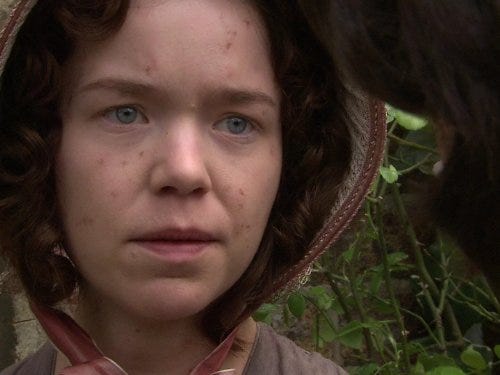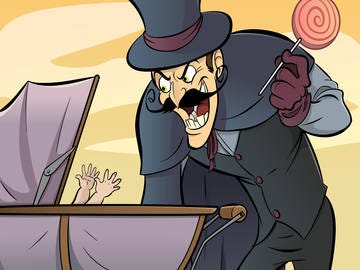ON SAINTS AND SINNERS
Perhaps the most important part of any fiction are well-realised characters. Story and plot are important, especially in action-based novels. But even here, it is more often than not the characters who are most memorable, who linger longest in the imagination and have the most resonance.
Readers of the Bond novels or Gone with the Wind can bring to mind James Bond or Scarlett O’ Hara yet the details of the story may well elude them.
It is extremely difficult to write one type of character, namely the wholly positive one. When I watched the BBC version of Dickens’ Bleak House I was astonished at Anna Maxwell Martin’s portrayal of Esther Summerson.
She made a kind, gentle and generous character powerful and memorable. It’s a difficult feat to pull off.
Early in the novel Esther and her friend Ada Clare stay overnight at the house of Mrs Jellyby who spends all her time doing good works for the people of Africa. Her daughter, Caddy, who works all hours as her mother’s secretary, seeks out Esther.
I don't know where my thoughts had wandered when they were recalled by a tap at the door.
I opened it softly and found Miss Jellyby shivering there with a broken candle in a broken candlestick in one hand and an egg-cup in the other.
"Good night!" she said very sulkily.
"Good night!" said I.
"May I come in?" she shortly and unexpectedly asked me in the same sulky way.
"Certainly," said I. "Don't wake Miss Clare."
She would not sit down, but stood by the fire dipping her inky middle finger in the egg-cup, which contained vinegar, and smearing it over the ink stains on her face, frowning the whole time and looking very gloomy.
"I wish Africa was dead!" she said on a sudden.
I was going to remonstrate.
"I do!" she said "Don't talk to me, Miss Summerson. I hate it and detest it. It's a beast!"
I told her she was tired, and I was sorry. I put my hand upon her head, and touched her forehead, and said it was hot now but would be cool tomorrow. She still stood pouting and frowning at me, but presently put down her egg-cup and turned softly towards the bed where Ada lay.
"She is very pretty!" she said with the same knitted brow and in the same uncivil manner.
I assented with a smile.
"An orphan. Ain't she?"
"Yes."
"But knows a quantity, I suppose? Can dance, and play music, and sing? She can talk French, I suppose, and do geography, and globes, and needlework, and everything?"
"No doubt," said I.
"I can't," she returned. "I can't do anything hardly, except write. I'm always writing for Ma. I wonder you two were not ashamed of yourselves to come in this afternoon and see me able to do nothing else. It was like your ill nature. Yet you think yourselves very fine, I dare say!"
I could see that the poor girl was near crying, and I resumed my chair without speaking and looked at her (I hope) as mildly as I felt towards her.
"It's disgraceful," she said. "You know it is. The whole house is disgraceful. The children are disgraceful. I'M disgraceful. Pa's miserable, and no wonder! Priscilla drinks--she's always drinking. It's a great shame and a great story of you if you say you didn't smell her today. It was as bad as a public-house, waiting at dinner; you know it was!"
"My dear, I don't know it," said I.
"You do," she said very shortly. "You shan't say you don't. You do!"
"Oh, my dear!" said I. "If you won't let me speak--"
"You're speaking now. You know you are. Don't tell stories, Miss Summerson."
"My dear," said I, "as long as you won't hear me out--"
"I don't want to hear you out."
"Oh, yes, I think you do," said I, "because that would be so very unreasonable. I did not know what you tell me because the servant did not come near me at dinner; but I don't doubt what you tell me, and I am sorry to hear it."
"You needn't make a merit of that," said she.
"No, my dear," said I. "That would be very foolish."
She was still standing by the bed, and now stooped down (but still with the same discontented face) and kissed Ada. That done, she came softly back and stood by the side of my chair. Her bosom was heaving in a distressful manner that I greatly pitied, but I thought it better not to speak.
"I wish I was dead!" she broke out. "I wish we were all dead. It would be a great deal better for us.
In a moment afterwards, she knelt on the ground at my side, hid her face in my dress, passionately begged my pardon, and wept. I comforted her and would have raised her, but she cried no, no; she wanted to stay there!
"You used to teach girls," she said, "If you could only have taught me, I could have learnt from you! I am so very miserable, and I like you so much!"
I could not persuade her to sit by me or to do anything but move a ragged stool to where she was kneeling, and take that, and still hold my dress in the same manner. By degrees the poor tired girl fell asleep, and then I contrived to raise her head so that it should rest on my lap, and to cover us both with shawls. The fire went out, and all night long she slumbered thus before the ashy grate.
Writing positive characters is not easy. They so often seem shallow, insipid and unrealistic. Their good deeds can seem tedious, their qualities vapid. It is so easy to get bored with them and long for the villain to bound centre stage, dressed in a black cape and twirling his moustache.
And who is to describe the saint’s sterling qualities? It can’t be the character themself for that would make them seem vain and vanity is not one of the cardinal virtues. Even if someone else describes their qualities the reader may distrust the motive. Does the narrator love the virtuous character, is he or she intent on seduction? Is he so beguiled he cannot see the blemish beneath the surface? In which case, what earthly use is his opinion? And if he is beguiled is this because the person he adores is not as good as they first appear but a consummate manipulator?
The answer to these difficulties is not to make your protagonist a Goody Two Shoes. Give them some character flaws, some failings they have to struggle to overcome. It makes them more plausible and, in the end, we view them better for it.
Esther Summerson does not have any flaws - unless you count her continual claims of not being intelligent when she obviously is. But she bears a great burden for she is tainted by that dreadful curse of Victorian times – she was born illegitimate.
Bleak House was probably situated in Saint Albans and was written in the early 1850’s. In 1851 25% of the town’s births were illegitimate, despite its magnificent abbey. The places I used to live: Derbyshire, Norfolk and Nottinghamshire had even greater rates – between 30% and 35%. Barnsley boasts not only the gigantic Barnsley Chop ……
……. but also the high rate of illegitimate births at almost 45%. Some parts of London’s East End such as Whitechapel North were even higher at 47%.
So we can see that Esther was not alone in being ‘born in sin’ as the Victorians so delightfully put it. It’s little wonder that Dickens, the great social reformer should make his most saint-like heroine the daughter of a sinner. (Stern moralists would have been pleased at the dreadful fate which befell both her parents.)






